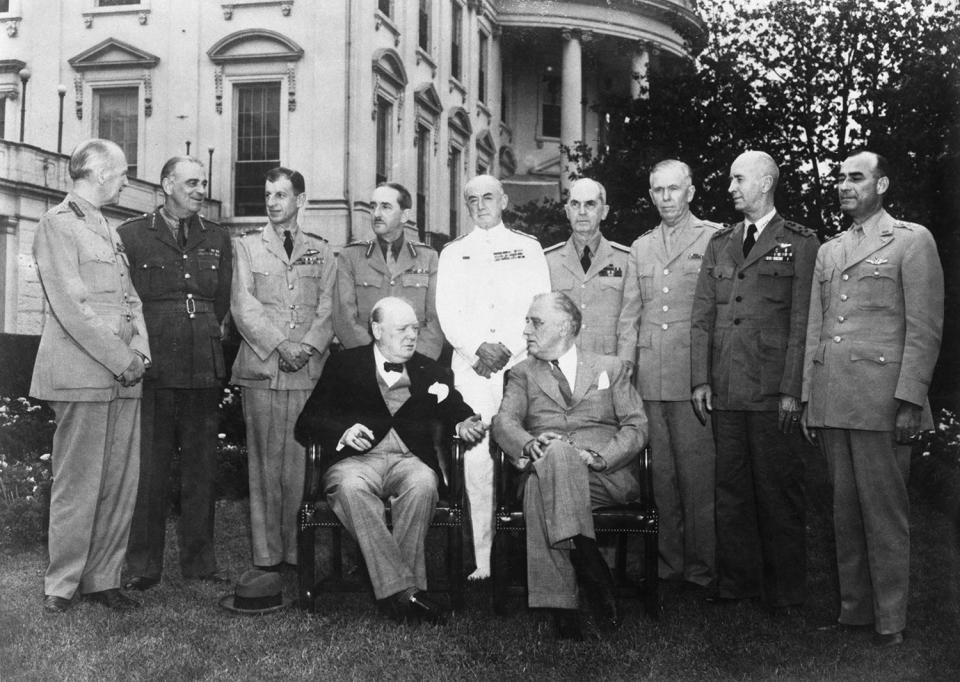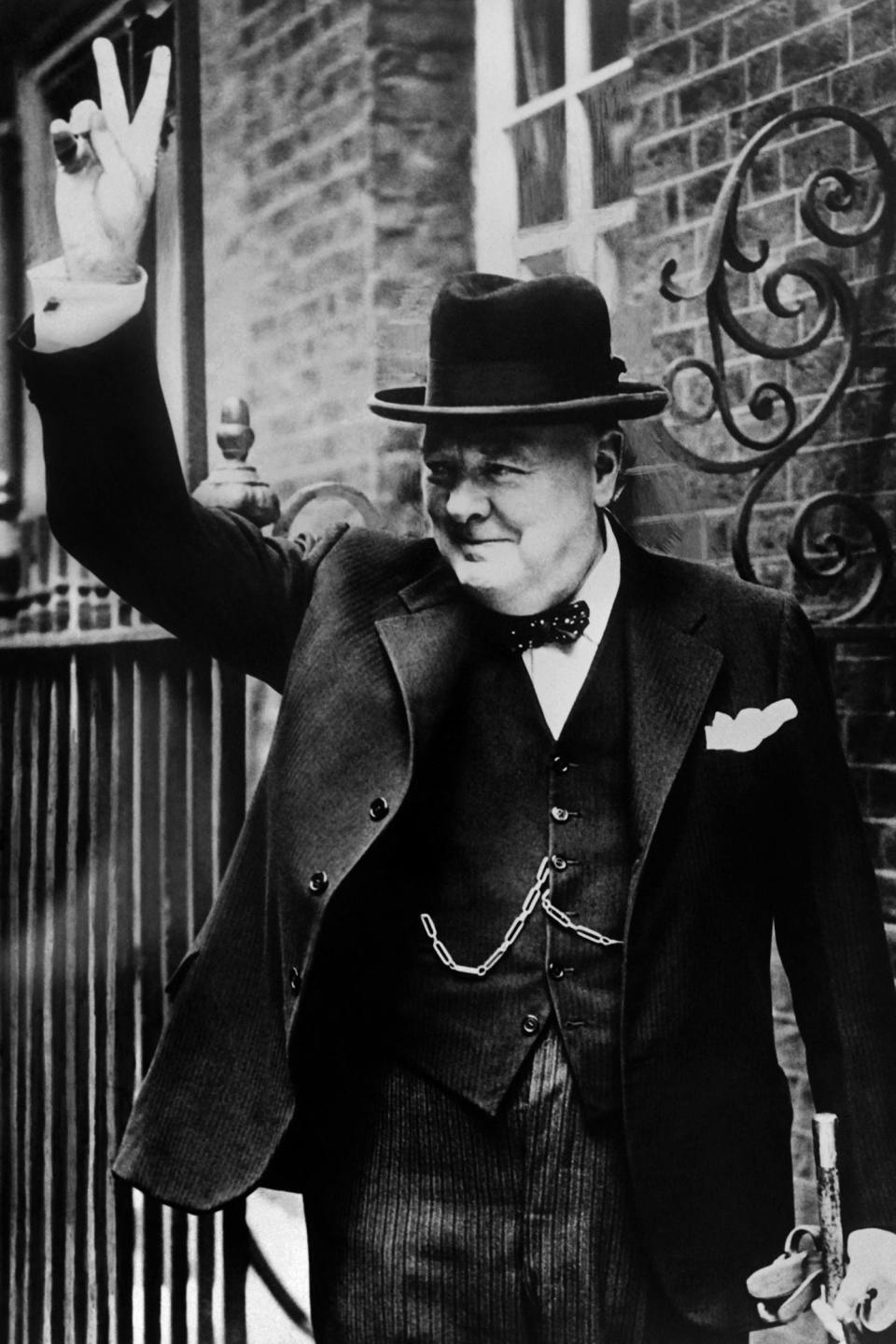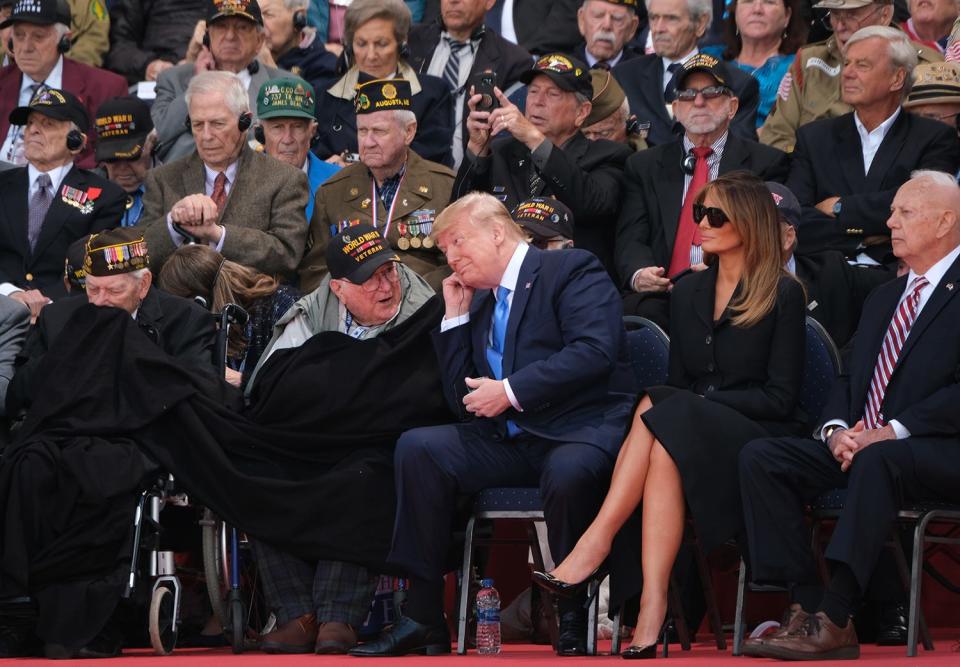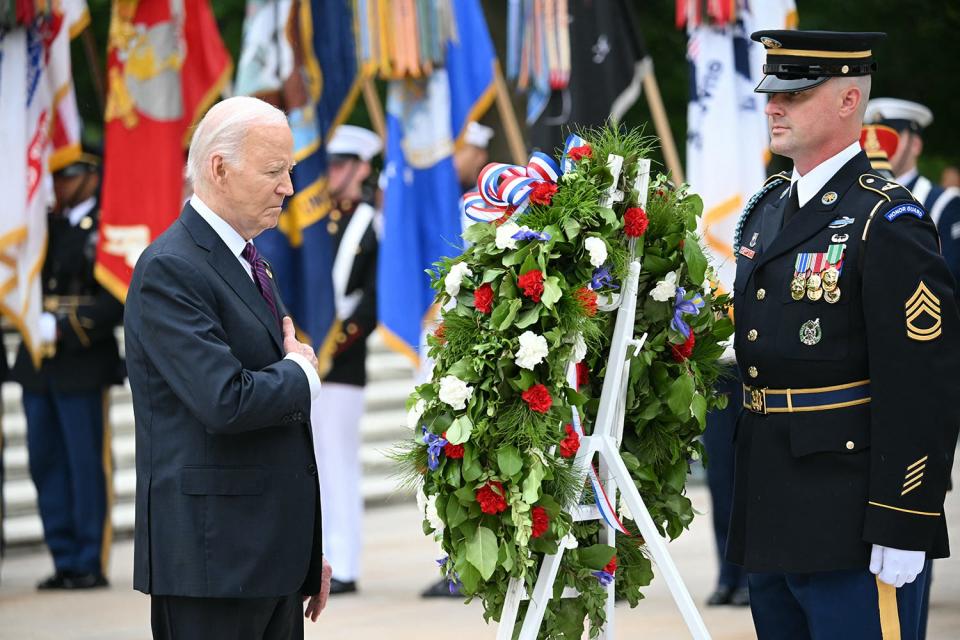How D-Day’s roots will play a crucial role in Trump-Biden battle in 2024 election
WASHINGTON — D-Day did more than pave the way for World War II victory in Europe: It solidified the international military alliances that have led the world for more than eight decades and have become politically contentious today.
Modern arguments about globalism between former President Donald Trump and President Joe Biden harken back to at least May of 1943. During a sweltering two weeks in Washington, American and British political and military leaders hammered out an agreement that included a specific timetable for what would become the D-Day invasion of Nazi-occupied France on June 6, 1944.
The Trident conference of 1943 also bequeathed the alliances that have become a target in the 2024 race for the White House, particularly the North American Treaty Organization.
As President Joe Biden and other world leaders head to Normandy to mark the 80th anniversary of D-Day this week, they will also be defending alliances that guided the western world through World War II, the Cold War, the war on terror and, currently, Russia's bloody invasion of Ukraine.
Trump has repeatedly threatened to abandon NATO, saying the U.S. bears too much of the burden. But supporting – and attacking – international agreements can be traced back in part to the Trident Conference of 1943.
"It was a crucial moment," said Thomas A. Schwartz, a distinguished professor of history at Vanderbilt University. "The importance of the trans-Atlantic relationship remains to this day."
Here's a look at how D-Day came together politically and diplomatically – and how those negotiations still echo.

Roosevelt and Churchill
Trident featured one of the world's greatest geopolitical partnerships: U.S. President Franklin Roosevelt and British Prime Minister Winston Churchill.
Their relationship is revered by history, but their interests at the time didn't always align.
In May of 1943, American officials had grave concerns as Churchill and a large entourage of British military officials arrived in crowded war-time Washington.
There was talk that the British might back away from their previous commitment to support a 1944 invasion of Nazi-held France, across the English Channel into the Normandy region.
Churchill and others, haunted by the blood-soaked trench warfare in Europe that marked the First World War, instead pushed for an invasion of Italy and other parts of southern Europe.
Fearful over whether a cross-channel attack could succeed, Churchill wanted to go after what he called the Nazis' "soft underbelly." At one point, he suggested pushing the operation in France back to even 1946.
As with other summits of this type, these differences were not aired publicly amid all the pomp. Officials worked things out in private, and left disputes for the history books.
FDR and the U.S. push for 1944
FDR and Pentagon officials wanted a cross-channel invasion as soon as possible, if only to take some pressure off another ally: The Soviet Union.
The Soviets were engaged in brutal fighting with the Germans in the east, and leader Joseph Stalin was demanding that western allies generate a second front to spread out the German military.
While emerging as the dominant partner over the British, Roosevelt and the Americans wanted to be careful with Churchill. They still needed Britain's help, particularly as a staging area for the operation over the English Channel.
This basic dispute – attack western Europe or southern Europe – dominated two weeks of hard negotiating, plus some wining and dining as the Americans alternated between intense pressure and gentle persuasion.
In the end, Roosevelt and the U.S. were in an increasingly strong position to force their will, as they were busy supplying more troops, more equipment and more money to the war effort.

The deal in 1943
The two sides wound up with a face-saving deal involving both Italy and the D-Day operation in France.
Delegates at the Trident conference agreed to transfer more military divisions to Britain to begin staging the assault on Normandy. The British also agreed to a target date for D-Day: May 1, 1944; that would eventually slip by a little more than a month.
The U.S., meanwhile, backed an attack on Italy, though that proved to be a harder-than-expected exercise. Allied forces didn't enter Rome until June 4, 1944, news that was quickly eclipsed by the Allied landings in Normandy just two days later.

'A plan now existed'
Then, as now, the public statements on Trident papered over the differences behind closed doors. So did many of the books and articles that followed the war, although later authors and historians reported the tense maneuvering behind the scenes.
The bottom line: The British, finally, fully signed onto D-Day.
"Despite this glossing over, a plan now existed where there had been no plan," wrote Rick Atkinson in "The Day of Battle: The War in Sicily and Italy, 1943-44."
Atkinson said all the planning disputes about the Normandy invasion "were kicked around and argued about" at the Trident conference. "That's the nature of alliances, especially with the stakes as high as they were."
People still debate the meaning of the agreements reached in Washington, and which negotiator made out the best.
David M. Kennedy, author of "Freedom From Fear: The American People in Depression and War, 1929-1945," wrote that the agreement "signaled the beginning of Roosevelt’s ascendance over Churchill in the scales of geopolitical influence and cheered the president’s advisers."
It wasn't a total loss for the British, other historians have said. Some U.S. officials had wanted to divert resources to the war against Japan in the Pacific; Churchill and his negotiators managed to keep the focus on Europe, including a strike at Italy.
Still, the relationship between the United States and NATO, up and down over the years, now faces a new challenge: The 2024 presidential race between Biden and Trump.

NATO and the 2024 election
Biden is only the latest president to travel to Normandy to commemorate D-Day, and to pay tribute to the trans-Atlantic alliance that emerged from the planning of it.
During his upcoming visit to Normandy, Biden will speak about "the importance of defending freedom and democracy," the White House said in its announcement.
Also on the agenda: "The enduring and comprehensive relationship between the United States and France, our oldest ally, founded on shared democratic values, economic ties, and defense and security cooperation."
Even Trump, then president, honored the U.S.-Europe-NATO relationship during the 75th anniversary of D-Day in 2019.
“To all of our friends and partners − our cherished alliance was forged in the heat of battle, tested in the trials of war and proven in the blessings of peace," Trump said. “Our bond is unbreakable.”
Trump has taken a different attitude toward international cooperation at other times in his presidency, and during his 2024 presidential campaign. The Republican candidate has said that too many countries have taken advantage of the United States.

During a February event in Conway, South Carolina, Trump claimed that one foreign leader once asked him whether the U.S. would come to the defense of his country if Russia attacked, even if he felt his country had not paid enough for mutual defense.
“No, I would not protect you,” Trump said he told the leader. “In fact, I would encourage them (the Russians) to do whatever the hell they want. You got to pay. You got to pay your bills.”
NATO members are asked to spend at least 2% of their GDP on defense. Not all members have reached this goal, fueling Trump's criticism of the alliance.
Biden and other world leaders condemned Trump's attacks against NATO saying he is putting Ukraine and other potential Russian targets at further risk.
"He wants to walk away from NATO," Biden said after Trump's South Carolina comments. "He doesn’t understand that the sacred commitment that we’ve given works for us as well.”
This article originally appeared on USA TODAY: How D-Day’s roots play crucial role for Trump, Biden in 2024 election


